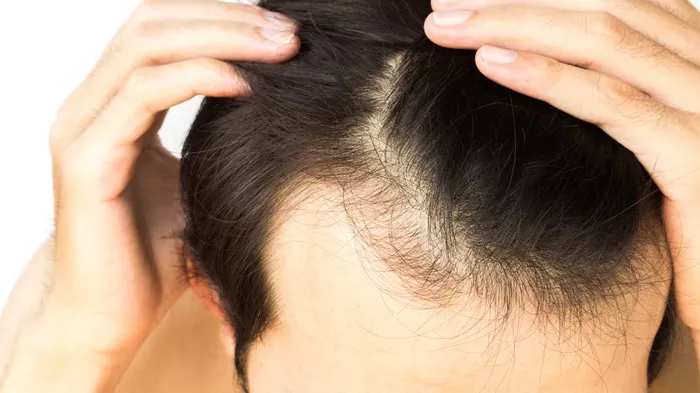If you’ve recently completed a course of Accutane (isotretinoin) and noticed that you’re experiencing hair loss, you’re not alone. Hair loss can be a concerning side effect of this potent acne medication. However, the good news is that there are steps you can take to address and mitigate this issue. In this comprehensive guide, we’ll explore the causes of hair loss after Accutane treatment and provide you with a range of actionable strategies to help you stop hair loss and promote healthy hair regrowth. Let’s dive into this essential topic.
Understanding Hair Loss After Accutane
Hair loss after Accutane, a potent acne medication, is a common concern. This phenomenon is typically temporary and is known as “telogen effluvium.” It occurs when hair follicles enter a resting phase prematurely. Hair loss often becomes noticeable weeks to months after starting Accutane but generally resolves after completing treatment. The medication can affect hair growth temporarily, but most individuals experience hair regrowth once their body readjusts. It’s crucial to maintain a balanced diet rich in essential nutrients, consider supplements like biotin, practice gentle hair care, and ensure scalp health. Consulting a dermatologist can provide personalized guidance for managing and minimizing hair loss after Accutane use.
Can post-retinoic acid hair loss be treated?
Post-retinoic acid hair loss can often be treated effectively. Hair loss caused by retinoic acid (commonly found in acne medications like Accutane) is typically temporary and referred to as “telogen effluvium.” This condition usually resolves on its own after discontinuing retinoic acid treatment. However, if the hair loss persists or is causing significant concern, several treatment options can help. These may include dietary changes to ensure adequate nutrition for hair health, the use of hair growth-promoting supplements like biotin, gentle hair care practices, and scalp health maintenance. Consulting a dermatologist is advisable to determine the best course of action for your specific situation.
Strategies to Prevent and Stop Hair Loss After Accutane
Here are strategies for prevent and stop hair loss after accutane:
1. Nutrient-Rich Diet:
A balanced diet is a key factor in maintaining healthy hair. Ensure that you’re getting an adequate intake of essential nutrients like biotin, vitamins A and E, zinc, and protein. These nutrients are crucial for hair health and can be obtained from foods like eggs, nuts, leafy greens, and lean meats.
2. Supplements for Hair Support:
Consider incorporating hair-supporting supplements into your daily routine. Biotin supplements, in particular, have been shown to promote hair growth and strength. Consult with your healthcare provider before starting any new supplements to ensure they are appropriate for your individual needs.
3. Gentle Hair Care:
Be extra gentle with your hair during and after Accutane treatment. Avoid excessive heat styling, tight hairstyles, and harsh chemicals that can damage your hair further. Use a mild, sulfate-free shampoo and conditioner designed to nourish and strengthen your hair.
4. Scalp Health:
A healthy scalp is essential for hair growth. Regularly massage your scalp to increase blood circulation, which can stimulate hair follicles. You can also use scalp oils or serums containing ingredients like minoxidil to support regrowth.
If hair loss is severe, do you need to consult a doctor?
If your hair loss is severe or persistent, it’s advisable to seek the expertise of a dermatologist. Dermatologists specialize in diagnosing and treating hair disorders. They can provide you with personalized recommendations and may suggest treatments like topical minoxidil or low-level laser therapy.
Understand that hair loss after Accutane is often temporary, and hair regrowth takes time. Managing stress through relaxation techniques like yoga or meditation can help minimize the impact of stress-related hair loss.
See Also: How to Prevent Hair Loss Due to Helmet: What You Need To Know
Conclusion
Experiencing hair loss after Accutane can be disconcerting, but it’s crucial to remember that it’s usually a temporary side effect. By adopting a comprehensive approach that includes a nutrient-rich diet, supplements, gentle hair care, scalp health maintenance, and consulting with a dermatologist when needed, you can effectively address hair loss and support the regrowth of your hair. Patience is key in this process, as it may take several months to see significant improvements. Rest assured that with the right strategies and care, you can restore your hair’s health and vitality, allowing you to enjoy the benefits of clear skin without the worry of hair loss.


